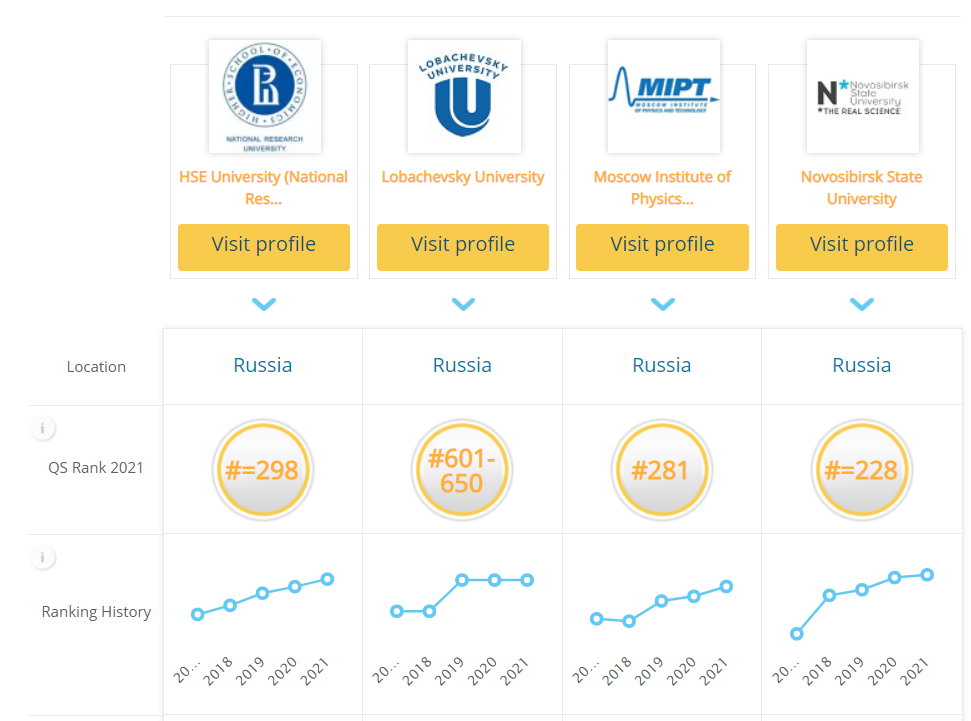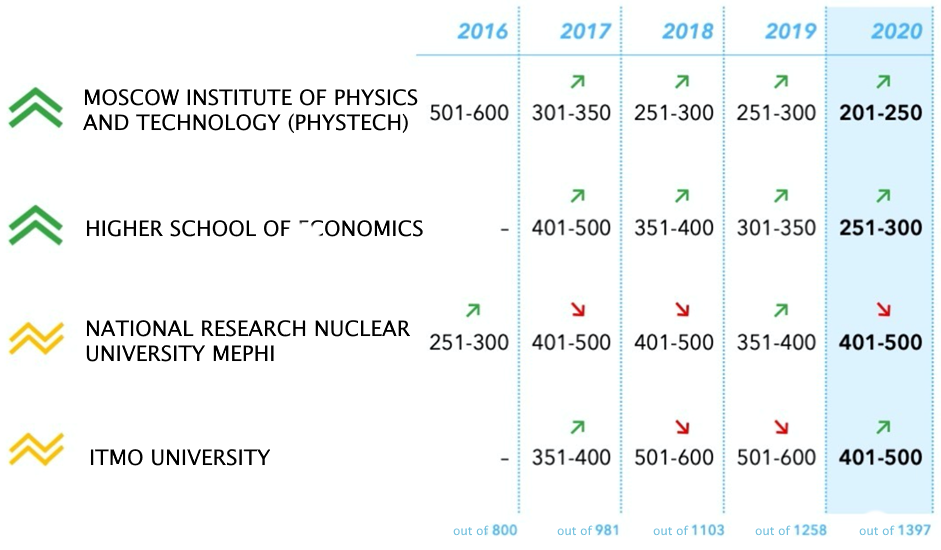“Generation 0-100: Russian Universities Fail to Offer World Class Education” – our team found an article with this headline on the website of “The National Interest” magazine dated October 29, 2020. Indeed, Russian universities did not manage to get into the top 100 best universities in the world. However, higher educational institutions raised their positions in the overall ranking. The statement of the checked article can be regarded as mostly true.
Part of a whole
Ararat Osipian, the author of the material, a researcher at the Institute of International Education, claims that Russian universities are not able to provide a proper education and enter the 100 best educational institutions in the world. As an argument, he cites the request of Russian President Vladimir Putin on the Project 5-100. The goal: at least five Russian universities should be among the top 100 best universities in the world by 2020.
The material of Mr. Osipian contains some inaccurate data. Indeed, the official order of Vladimir Putin, the president of the Russian Federation, of May 7, 2012 includes a clause stating that 5 Russian universities should enter the top hundred of the world’s leading universities according to world university rankings. But, this is only an aspect of the Decree “On measures to implement state policy in the field of education and science”. The source is the official site of the Project 5-100.
As for the philosophy of the project, the goal of 5-100 – to maximize the competitive position of a group of leading Russian universities in the global market of educational services and research programs.
World overall rankings
Mr. Osipian also writes about the positions of Russian universities in the world ranking, noting that only 21 higher educational institutions were included in the top 500. However, the author did not analyze changes in the positions of universities with regard to other general authoritative rankings. Based on the material with information on the rankings of educational institutions on the Forbes Education website, one can trace how Russian universities appear and rise in the lists.
The rankings to aim for are determined by the task of the project itself. These are the three most prestigious and authoritative rankings of universities in the world – Quacquarelli Symonds (QS), Times Higher Education (THE) and Academic Ranking of World Universities (ARWU or Shanghai ranking).
– Times Higher Education included 400 Russian universities in 2015, and by 2020 – more than 1000.
– ARWU more than doubled the number of participants: from 500 in 2016 to 1000 in 2019.
– QS contained 800 universities in 2014, and 1000 in 2020.
In addition, the dynamics of Russian universities is mostly positive, as evidenced by the charts compiled by rankings.



Rankings by Subject
Another omission of the author is Subject Rankings. Ararat Osipian relies only on the general summary, but claims about the failure of universities in general. In turn, Russian universities improve their performance not only by the quantity, but also by the quality of individual subject areas.
According to the source, the number of Russian universities in the top 100 best universities in the world under the version of the Shanghai Subject Ranking (ARWU) has grown from six to eight (the ranking was updated in 2019). In total, this list includes 15 Russian universities.
It should be noted that the Shanghai ranking includes more than 4,000 universities in the world in 54 subjects in such areas of knowledge as Natural and Engineering Sciences, Life Sciences, Medical and Social Sciences.
For example, the National Research Nuclear University MEPhI, which moved from position 151-200 to position 101-150, and the Moscow Institute of Physics and Technology, which moved from position 201-300 to 151-200, demonstrated significant growth in the area of Physics.
Among the newly added universities that were included in the ranking are Tomsk Polytechnic University, which took position 76-100 in the subject area “Mechanical Engineering”, and ITMO University – position 76-100 in the subject area “Automation and Control”.
There were outsiders too, of course. For example, MSU dropped one position in the subject ranking in Physics, taking 45th place, and left the 51-75 group, taking 76-100 in the field of “Mathematics”.
The overall dynamics in the ranking is positive, and Russian universities continue to increase their performance and hone their subject areas.
Conclusion
In short, our research has shown that the statement “Russian universities fail to offer world class education” is mostly true. The author of the article in The National Interest magazine outlined the point of the request not as a part, but as a whole, which is not entirely correct. Another important omission was that the author formed a limited perception about the development of Russian universities due to the fact that he did not take into account the subject rankings of world universities.
RESEARCH | ARTICLE © Anna Alexeeva, Daria Lapshina, Milena Pazina, Lobachevsky University, RU
Leave your comments, thoughts and suggestions in the box below. Take note: your response is moderated.




